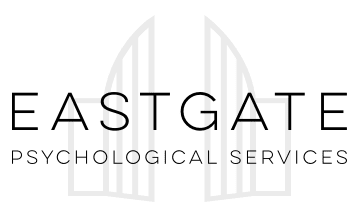I’ve been a churchgoer for my entire life, from conception up until now. Calling myself a Christian is something of a later thing, but I am careful now to never assume that a churchgoer is a Christian. Although my faith and the way I follow Jesus has changed, I consider it one of my life’s greatest achievements that I’ve hung on this long. Through great disillusionment in fellow Christians, to the hard work of reconstruction after radical deconstruction spurred in part by seminary studies, I’m rather glad I’ve been open to painful pruning while still maintaining deep roots. And yet, I’m reminded of a former professor of mine gently reminding me that “God’s grip on us is stronger than our grip on him.” The older I get, the more I think I haven’t really had as much to do with remaining in the faith as much as I have been kept in it.
But as long as I’ve been kept in it, I’ve seen enough that has made me want to leave it all. Unsurprisingly, it’s the behaviour of my fellow churchgoers that frequently makes me wonder if I’ve had enough and whether Sunday mornings would be better spent in more relaxing ways.
I’ve admittedly had a fairly happy experience of “growing up in the church.” I’ve been lucky to not been sat under bad teaching, or the target of groomers, or to have had to endure bad teaching without the option for something else. But I wouldn’t be writing this now if it wasn’t to acknowledge that even as much as I’ve had a relatively good experience overall, so many people I know and work with as clients have had atrocious things happen to them in the church. I marvel that a few of them have stuck around the edges of the church. I don’t know I would. Spiritual abuse may or may not include sexual, physical, or emotional elements, but even if it doesn’t, it leaves a painful wreckage that for a lot of people isn’t worth sifting through for reconstruction of something good and true.
The common thread in all of the spiritual abuse I have both seen and heard of is that of a trusted authority figure– pastors, elders, counselors– taking advantage of someone’s trust and using it to exploit them to their own ends. As a former pastor, I grind my teeth every time I hear another story of how wolves seemingly run free in their flocks. I do my part where I can. The book on working with adults who were abused is to try to empower them to make a report themselves, but I’ve reported a fair number of abuse cases to the relevant authorities. Yet more often than not, the police have sadly declined to press charges for historical abuse, spiritual or not. It’s frustrating, but sometimes even helping people reach the point where they can say the words out loud and report what has happened to them is a step towards recovery.
Much ink has been spilled about what spiritual abuse looks like and how to heal from it. But a lens that I often adopt in helping people heal from spiritual abuse is to, somehow, guide others into trusting authority figures once more. This mirrors the kind of work I frequently find myself doing, which is to help people heal from difficult relationships with their parents. But as you can imagine, saying that I’m doing this is easy, but the process by which people can learn to keep appropriate relational boundaries while still letting their guard down and being vulnerable in a safe way is a complex one indeed.
Psychodynamic treatment– the kind of work we mainly do at Eastgate– is all about fostering alternative approaches to relational circumstances we repeat over and over again without knowing why. Others may call it “attachment based” treatment, which is another way of getting at the heart of the treatment style: that our earliest and most primal relationships where we are most vulnerable and needy somehow form our expectations of our future relationships. For most of us who haven’t been abused, having been met in our need in the right ways gets into our unconscious and helps us enter into and maintain trusting intimacy because we’ve experienced the rewards of it before. But for those who have been abused, that attachment is skewed towards mistrust and betrayal. Those experiences enter our unconscious and make us think, “I can’t trust people in authority not to hurt me.” Psychodynamic psychotherapy– especially the kind known as “relational psychoanalysis”– essentially seeks to correct our relational impulses by way of substituting bad relationships with a good one.
If you’re thinking that the process by which you start to heal from abuse– spiritual or otherwise– is to learn on a deep level that others to whom you feel close can actually be trusted, you’re absolutely right. But is therapy/counselling necessary to take these steps? Perhaps not, but the care, intention, safety-building, and professional thoughtfulness that a good therapist puts into their working relationships goes a long way towards creating the conditions for you to experience something different of yourself and others.

